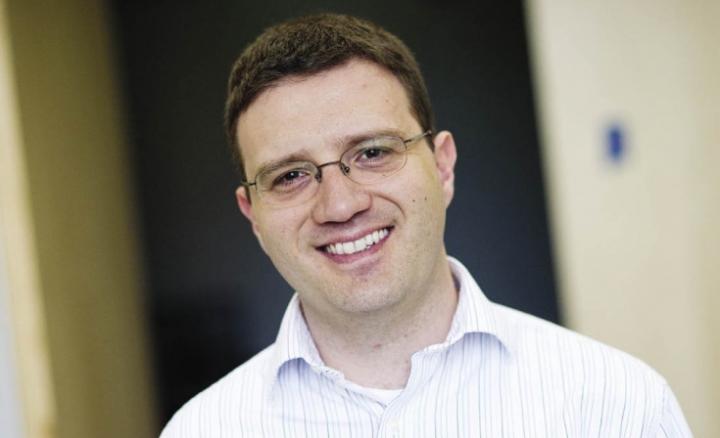Iron-detecting nanosensors used to study proteins in blood

Credit: UT Arlington
A University of Texas at Arlington bioengineering researcher will use nanotechnology to detect defective iron-carrying proteins in a patient’s blood, which could help explain why these patients have anemia.
The National Science Foundation (NSF) project could become integral to finding other defective proteins in a patient’s blood or tissue biopsy due to cancer or some other illness.
George Alexandrakis, UT Arlington associate professor in bioengineering, is teaming with MinJun Kim, an endowed engineering professor at Southern Methodist University, on the three-year, $500,000 NSF grant. Each professor will receive $250,000.
“One key in this research is that a very small amount of blood is needed,” Alexandrakis said. “The protein carries iron, and it can be trapped by our nanosensor. It’s then stretched or heated at the single molecule level so we can probe how it refolds again once left alone. The way it refolds or misfolds gives us a way to see if it is defective or not.”
Alexandrakis said this project could lead to new knowledge about the dynamic structure of a large menu of proteins, which could help design precision therapeutics.
Michael Cho, chair of the UT Arlington Bioengineering Department, said Alexandrakis’ research could carry implications across the medical analysis sector.
“His work has ramifications on so much of our medical lives,” Cho said. “I’m sure it will provide a baseline for protein analysis in the future.”
Alexandrakis also specializes in research for brain and cell imaging, especially for children with cerebral palsy. That work is ongoing.
He said UTA supported his sabbatical to England’s Oxford University in 2015, when he became interested in using nanosensors for blood detection. Alexandrakis credited Jon Weidanz, associate vice president for research, and Duane Dimos, former vice president for research, for providing him with seed funding that made his current work possible.
###
Media Contact
Herb Booth
[email protected]
Original Source
https:/




